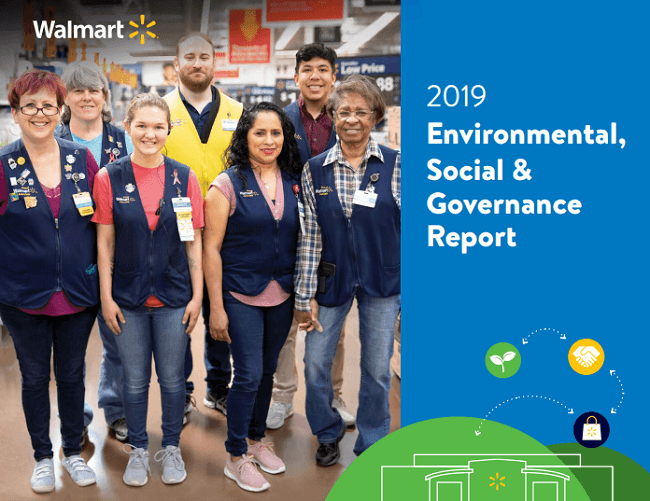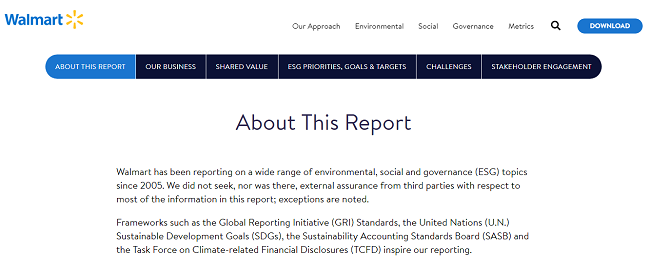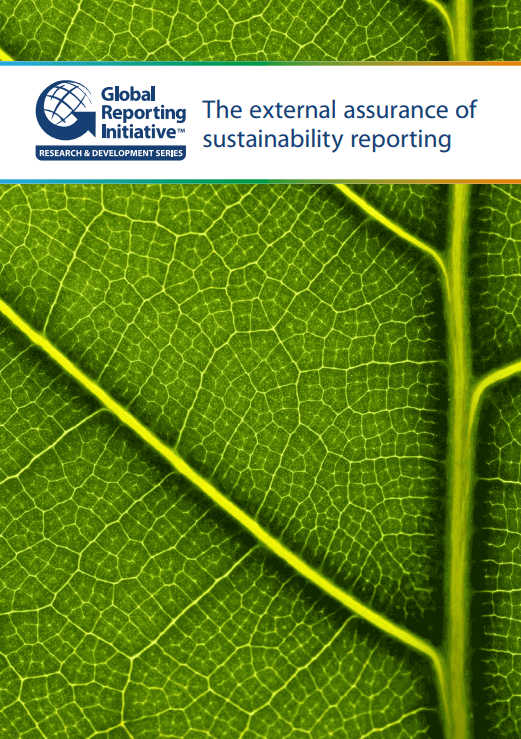It is desirable to have external assurance but nobody verifies Walmart’s CSR … Why?
Walmart claims to be committed to promoting the dignity of men and women in the supply chain.
Collaborates in industries and organizations around the world to help combat forced and child labor, address unsafe working conditions and promote women’s dignity.
To this end, it supervises and investigates problems in the supply chain, incorporates responsible procurement practices in purchasing decisions and engages in initiatives to find solutions that can transform supply chains.
This is just one of the many initiatives of Corporate Social Responsibility of the retail giant.
But apparently nobody checks Walmart’s RSE … because they decided so.
Walmart admits that nobody reviews their CSR
Recently Walmart published its ESG report.

At the beginning of it, it is clearly indicated:
«Walmart has been reporting on a wide range of environmental, social and governance (ESG) issues since 2005. We do not seek, nor do we have, third-party external assurance with respect to most of the information in this report; exceptions are observed.»
And then simply add:

«Frameworks such as the Global Reporting Initiative (GRI) Standards, the Sustainable Development Goals (SDGs) of the United Nations, the Sustainability Accounting Standards Board (SASB) and the Working Group on Climate-Related Financial Disclosures (TCFD) inspire our reports.»
Walmart’s values
The values of Walmart are:
- Respect for the individual
- Customer service
- Fight for excellence
- Act with integrity
But taking into account that it indicates that it does not seek or have external assurance from third parties … is it acting in accordance with that fourth value?
Walmart does not have third parties that monitor the reports they publish, so the question in this case is how to believe what the reports say if there is no external assurance?
Why?
The brand does not give explanations of why they do this, even when the verification of a third party is desirable for many and increases stakeholders’ confidence.
Of course, it can also happen that Walmart considers that its maturity in the issue of social responsibility is sufficient and that external verifications do not add value to the work done, so assuming the risk, they decide to simply omit it.
In this way, they address the only reputational risk facing their interest groups to comply with what they say they do.
Now … what does GRI say about it, one of the most recognized frameworks in sustainability reports?
What is GRI?
Global Reporting Initiative (GRI) promotes the use of sustainability reports as a way for organizations to be more sustainable and contribute to a sustainable global economy.
The mission of GRI is to make sustainability reports a standard practice and provide guidance and support to organizations.
To enable all companies and organizations to report on their economic, environmental, social and governance performance, GRI provides Sustainability Reporting Guidelines.
GRI Sustainability Reporting Guidelines
Sustainability reporting is a process that helps organizations understand the links between issues related to sustainability, plans, organizational strategy, goal setting, performance measurement and change management toward a sustainable global economy, combining profitability with social responsibility and environmental care.
The final product of this process is a sustainability report in which the organization reports on the most critical (or material) aspects of the economic, social and environmental impacts of the organization and the relationship of those with their performance.
Sustainability performance data provide a powerful tool for assessing the current health and future prospects of a company.
And what does it say about external assurance?
External verification or assurance can provide report readers and internal managers with greater confidence in the quality of sustainability performance data, which makes the data more likely to be trusted and used for decision making.

The external assurance of sustainability reports shares the similarities with the external audit of the financial reports.
Sustainability disclosures often involve a combination of quantitative and qualitative information.
But this will be perfected and having better standards gradually.
What is independent assurance of sustainability reports?
The use of external and independent reviews of sustainability management processes and final disclosures aim to increase the solidity, accuracy and reliability of the information disclosed.
The terms used to describe this process vary and include assurance, external assurance, verification and certification.
The definitions and interpretations behind each independent review vary, and the types of information and scope of information that must be guaranteed may also vary.
An assurance commitment process can focus on the quality of the data, the processes for determining what data to collect, or both.
The underlying intention in all cases is to improve the quality of the final disclosures. Higher quality information is considered more reliable and, ultimately, more useful for the company.
The International Federation of Accountants (IFAC) defines the commitment of assurance as one in which a professional expresses a conclusion designed to improve the degree of confidence of the intended users, apart from the responsible party, on the result of the evaluation or measurement of a topic against the criteria.
GRI uses the term «external assurance» as a general term to cover a wide range of approaches to the external evaluation of sustainability disclosure processes and reporting.
Why is external assurance necessary?
Companies look for security for a variety of reasons. Some of the internal and external benefits of the guarantee can be easily identified, often aimed at generating confidence in the areas of governance, management and relations with stakeholders.
Benefits of external assurance
The benefits of external assurance include:
- Greater recognition, trust and credibility
An assured report can provide interested parties with a greater sense of confidence in the disclosures.
Among other things, it reflects the seriousness with which the company deals with sustainability reports.
Investors, rating agencies and other analysts are increasingly looking for guarantees when making investment and rating decisions.
- Reduced risk and greater value
Data quality remains a major problem for reporting companies. It is more likely to rely on revelations that are considered solid and credible, which increases the value of reports.
- Engagement improvement at the level of the board of directors and the CEO
With a greater interest in sustainability disclosures and its importance to drive improvements in the strategy, performance and reputation of the company, the sustainability problems are moving towards the board of directors and C-Suite.
- Strengthening internal information and management systems
Internal robust reporting systems and controls play an important role in performance management and the impacts of sustainability.
External assurance can help confirm that internal systems and controls are robust and can recommend the necessary improvements.
- Communication improvement with the stakeholders
The assurance processes can involve the review of the commitment processes of the company’s stakeholders.
Assurance checklist – How to conduct an external assurance?
The following list of questions may be useful for companies that are considering an external assurance process.
Planning stage
- What are the relevant national laws and standards?
- Who is the internal/external audience for the report/disclosures?
- What information is most important to have assured (i.e. the assurance ‘scope’)?
- What level of assurance is important for the intended audience?
- To what extent do we plan to integrate sustainability reporting and annual (financial) reporting? Can we gain efficiencies from integrating sustainability report assurance and financial auditing?
- What added-value do we want to achieve from the assurance process?
- Do we have internal reporting systems and review processes in place?
- What type of assurance provider do we need (e.g. locally or globally operating)?
- How independent is the assurance provider?
- Which assurance standard do we want our provider to use?
- What activities will they do (i.e. nature and depth of assurance work)?
- How much will it cost?
Execution stage
- Does the assurance engagement plan address relevant disclosure risks?
- What documentation and data will be supplied to the assurance provider in order to form a conclusion?
- When will the necessary documentation and data be supplied to the assurance provider?
- Will management and/or data managers be interviewed as part of the process?
- Are visits to key operational sites necessary?
Reporting and feedback stage
- What will the assurance report or statement look like?
- Have we agreed on a process for the assurance report or statement? E.g. Will management see and be able to comment on the assurance statement or report prior to report publication?
- Will the assurance provider provide a ‘management letter’ for the board or executive management team with additional feedback on sustainability processes and reporting?







